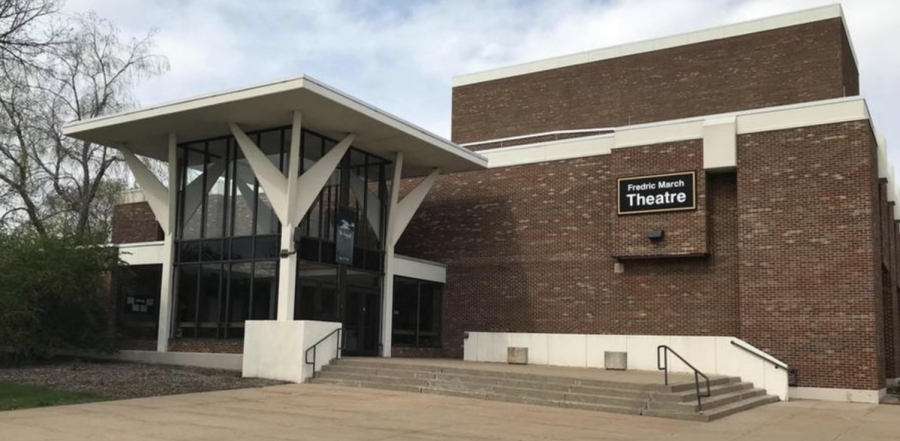Leavitt decides to rename Fredric March theater
August 18, 2020
Chancellor Andrew Leavitt announced today he has decided to remove the name of Fredric March from the Oshkosh campus theater and rename the space the Theatre Arts Center.
In an email sent out to faculty, staff and students, Leavitt said he has the authority to do so as chancellor.
He wrote: “This is one more action we take to better reflect UWO’s commitment to making the institution a more just, inclusive and equitable place where everyone is unhindered in their experiences and journeys. “
The then Wisconsin State University-Oshkosh decided in the 1970s to name the newly constructed theater after the actor who was born Ernest Frederick McIntyre Bickel in southeastern Wisconsin. A graduate of UW-Madison, Bickel took the stage name Fredric March and earned international acclaim as an Academy Award winning film actor.
But two years ago, UW-Madison students, faculty, staff and other social justice advocates called upon their university to remove March’s name, and that of UW-Madison alumnus Porter Butts, from a small theater and another space within UW-Madison’s Memorial Union, after it was discovered that the two belonged to a UW-Madison interfraternity society known as the “Ku Klux Klan” while they were students in the 1920s. Ultimately, Memorial Union leaders opted to remove both names, which Chancellor Rebecca Blank later wrote about.
“As UW-Madison investigated the matter, I also received a demand from UWO students and advocates to remove March’s name from the Oshkosh Campus theater,” Leavitt said. In 2019, UWO gathered information, hosted forums, listened to and surveyed students and more as it considered its next step.
“There is no evidence to show that the UW-Madison group March belonged to was linked to the national movement of the Ku Klux Klan in its time,” Leavitt said. “Furthermore, biographers and some media accounts have documented a streak of social justice later in March’s life. Leveraging his celebrity and talents, he spoke out against the U.S. House of Representatives Un-American Activities Committee, which targeted Hollywood actors among other people, and allied with civil rights champions such as the NAACP.”
Yet, he acknowledged, there remains the troubling fact of March’s college interfraternal affiliation. The UW-Madison task force concluded that the founders of the group March belonged to named their society to signal “an identification—or, at the very least, no meaningful discomfort—with the widely known violent actions of the Reconstruction-era Klan as it was remembered, celebrated, and given new cultural and institutional life in the early twentieth century.”
“After the UW-Madison revelation, and before this turbulent 2020s arrival, I heard shock and pain from UWO community members and stakeholders urging the administration to remove March’s name from the Oshkosh campus theater,” Leavitt wrote. “I have since heard from additional students of color, colleagues, alumni and other advocates supporting that change. I have spent a lot of time thinking about their perspectives, experiences and call to action as I have considered Fredric March’s history, my own privilege and the unrest and anguish many people are living through right now. As this year alone has reminded us, systemic racism continues to shatter our communities, country and world, exacting a particularly devastating toll on people of color.
“I no longer possess—and this institution should reject—the privilege of nuancing explanations as to how a person even tangentially affiliated with an organization founded on hate has his name honorifically posted on a public building,” Leavitt said. “Letting the Oshkosh campus theater’s name stand would also permanently overshadow and discount the educational and artistic virtuosity we work so hard to nurture within and beyond its walls.”














